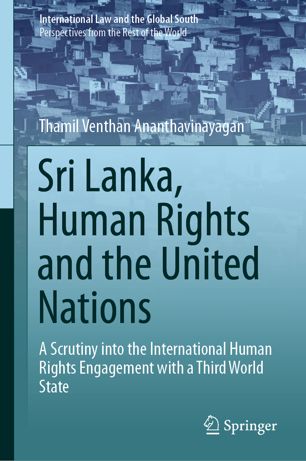

Most ebook files are in PDF format, so you can easily read them using various software such as Foxit Reader or directly on the Google Chrome browser.
Some ebook files are released by publishers in other formats such as .awz, .mobi, .epub, .fb2, etc. You may need to install specific software to read these formats on mobile/PC, such as Calibre.
Please read the tutorial at this link: https://ebookbell.com/faq
We offer FREE conversion to the popular formats you request; however, this may take some time. Therefore, right after payment, please email us, and we will try to provide the service as quickly as possible.
For some exceptional file formats or broken links (if any), please refrain from opening any disputes. Instead, email us first, and we will try to assist within a maximum of 6 hours.
EbookBell Team

4.7
46 reviewsThis book examines the engagement between the United Nations’ human rights machinery and the respective governments since Sri Lanka (then Ceylon) joined the United Nations.
Sri Lanka has a long and rich history of engagement with international human rights instruments. However, despite its active membership in the UN, the country’s post-colonial trials and tribulations are emblematic of the limited influence the international organisation has exerted on this country in the Global South.
Assessing the impact of this international engagement on the country’s human rights infrastructure and situation, the book outlines Sri Lanka’s colonial and post-colonial development. It then considers the development of a domestic human rights infrastructure in the country. It also examines and analyzes Sri Lanka’s engagement with the UN’s treaty-based and charter-based human rights bodies, before offering conclusions concerning the impact of said engagement.
The book offers an innovative approach to gauging the impact of international human rights engagement, while also taking into account the colonial and post-colonial imperatives that have partly dictated governmental behaviour. By doing so, the book seeks to combine and analyse international human rights law, post-colonial critique, studies on biopower, and critical approaches to international law. It will be a useful resource not only for scholars of international law, but also for practitioners and activists working in this area.